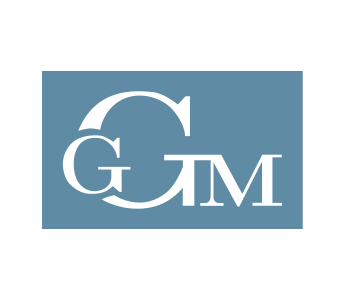Michigan Business Growth Fund Makes Financing Available for Small Businesses
Money from the federal Small Business Jobs Act (2010) is funding the Michigan Economic Development Corporation’s (MEDC) Michigan Business Growth Fund (MBGF) to provide small businesses and lenders with loan support by covering collateral value problems and cash flow ratio gaps for otherwise viable businesses with promising growth prospects. This loan support from the MBGF provides comfort to lenders, who would not otherwise be likely to provide funding based upon the shortfall demonstrated in the lender’s analysis. There are two programs that make up the MBGF:
1. Collateral Support Program (CSP): During economically challenging times, borrowers are faced with the problem of devalued property, structures, and equipment, resulting in little to no collateral value against which they can borrow. The CSP supplies cash collateral accounts to cover all or a portion of the collateral shortfall to lending institutions – intended to be pledged as collateral on behalf of the eligible borrower. To be eligible for the CSP, a borrower must be engaged with a private lender for the purpose of obtaining an extension of commercial credit, with a lender’s analysis which shows a collateral shortfall, and must have 750 employees or less. The following program guidelines apply (list not exhaustive):
- The borrower must be in a qualified industry: mining, manufacturing, research and development wholesale and trade, film and digital media productions, office operations, or a high technology business (see MCL 207.803(n)).
- Proceeds must be used for projects within the State of Michigan.
- The CSP can support up to 49.9% of a new extension of commercial credit.
- Maximum participation is capped at $5,000,000, and cannot be used to support individual extensions greater than $20,000,000.
- Cash is deposited into an interest bearing account with the lender, with collateral pledged on the borrower’s behalf on a transaction by transaction basis.
- If an individual holds a 20% or greater ownership interest in the borrower, a personal guarantee is required.
- The program charges a 1-3% fee at closing, calculated based upon the fund participation amount.
- The program charges an annual fee, based upon the fund balance at the time (1-3% of fund balance).
In order to be considered for the CSP, an application (Michigan Loan Enhancement Intake Form) and the appropriate lender credit approval documents must be submitted to: Capital Markets Development, Michigan Economic Development Corporation, Attn: Chris Cook, 300 N. Washington Square, Lansing, MI 48913 ([email protected]). At this time, 23 financial institutions participate in the CSP, with the MEDC adding more to the list as the program continues to be marketed.
2. Loan Participation Program (LPP): The LPP is intended to increase capital to small businesses by participating with lenders to address cash flow shortages that make small business loans less attractive. The LPP purchases a portion of the loan and offers a grace period on its portion of the loan for up to three years. This serves to limit the exposure of the lender and also provides the borrower with additional cash flow during the LPP’s grace period. To be eligible for the LPP, a borrower must be engaged with a private lender for the purpose of obtaining an extension of commercial credit, with a lender’s analysis which shows a cash flow shortage, and must have 750 employees or less. The following program guidelines apply (list not exhaustive):
- The borrower must be in a qualified industry: mining, manufacturing, research and development wholesale and trade, film and digital media productions, office operations, or a high technology business (see MCL 207.803(n)).
- Proceeds must be used for projects within the State of Michigan.
- The LPP can purchase up to 49.9% of a new extension of commercial credit.
- Maximum participation is capped at $5,000,000, and cannot be used to support individual extensions greater than $20,000,000.
- The LPP can provide reduced or 0% interest terms on its purchase, for a maximum term of 36 months.
- The private lender acts as the “lead” bank, with the LPP relying on the lender’s credit, operational, and financial risk assessment. The lender must provide the appropriate analyses, justifications and financial statements as the LPP deems necessary.
- The program charges a 1-3% fee at closing, calculated based upon the fund participation amount.
- The program charges an annual fee, based upon the account balance at the time (1-3% of account balance).
- An exit fee/pre-payment fee may be charged if purchase is exited prior to resumption of standard repayment terms.
- The lead lender manages all aspects of the loan.
In order to be considered for the LPP, an application (Michigan Loan Enhancement Intake Form) and the appropriate lender credit approval documents must be submitted to: Capital Markets Development, Michigan Economic Development Corporation, Attn: Chris Cook, 300 N. Washington Square, Lansing, MI 48913 ([email protected]). At this time, ten financial institutions participate in the LPP, with the MEDC adding more to the list as the program continues to be marketed.
More detailed information is provided at the following link:
http://www.michiganadvantage.org/michigan-business-growth-fund/
News and blog articles presented in this website are distributed for general information purposes only with the understanding that the author, publisher and distributor of articles is not rendering legal, accounting, or other professional advice or opinions on specific facts or matters and, accordingly, GGTM assumes no liability whatsoever in connection with the use of any article. Pursuant to applicable rules of professional conduct, this communication may constitute Attorney Advertising.

